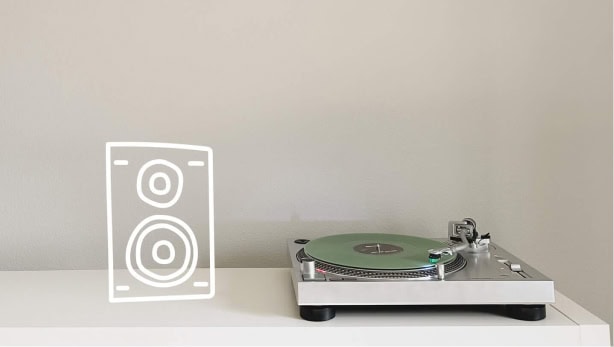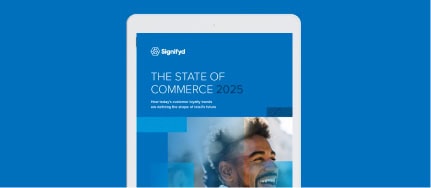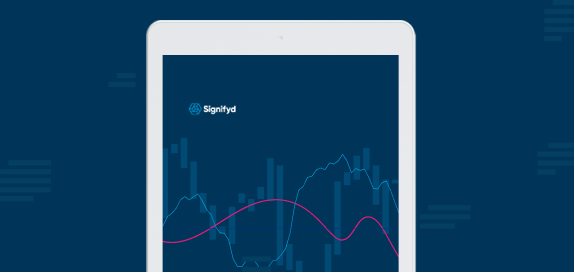Tuckernuck gets a boost of confidence from Signifyd
The well-spoken, highly educated women who run the Washington D.C.-based, all-American style clothes e-retailer Tuckernuck have a special “in the office only” curse word they share privately among themselves. It’s the name of the South Carolina couple who took them for $7,000 in chargebacks over a period of two months.
“They would consistently issue chargebacks and then have the audacity to call us and ask why we would stop shipping to them,” says Emily Hayes, Operations Manager of the $12 million company. “We spoke with them about their products and saw pictures of them wearing them … In no way did they look like fraudsters, but they clearly had the whole chargeback thing figured out where their bank could issue them the money back (while they) keep the product.”
Hayes says that frustration helped lead Tuckernuck to Signifyd, the largest provider of guaranteed fraud protection for ecommerce merchants.
“We started with Signifyd last fall, 2016, and that was just after reviewing our financials,” says Hayes. “On average, we were losing about six to ten thousand dollars a month in chargebacks with one month in particular heading to be around $14,000, which was such a crush for us…we have a nice product but by no means are we a high-end luxury brand that’s selling $6,000-and-up handbags or leather goods. For us that was really shocking to see how much fraud had taken over. So we got on board.”
Signifyd now identifies fraud for Tuckernuck by leveraging real-time machine learning that incorporates external 3rd party data and compares each buyer’s credentials to transactions across a database of thousands of merchants globally. Signifyd then evaluates, approves and guarantees each legitimate order in real-time. The confidence of knowing their orders are protected has enabled Tuckernuck to consider expanding internationally, says Hayes. “I’ve been holding off until we got our fraud situation in hand.”
“None of us were trained (in identifying online fraud) but we were finding out as we went, which is, unfortunately, all we had to rely on. We would sort of teach ourselves as we go. We’re a small and scrappy team but we just kind of relied on our gut, and research that we did among and about how to identify fraud. We tried to Google the addresses and see where they were going. A lot of times it ended up in an office park that looked industrial and not a home that would be receiving a package worth $1,000. We made plenty of calls…that’s also why we had to turn toward professionals to handle it for us.”
Most of the stolen goods flew to Miami and elsewhere in Florida, says Hayes. “A lot of our fraudulent orders contained Canada Goose jackets. The ones that we sell are in the $900 range,” she says. Daniel Wellington Watches, which retail for $295, were often pilfered by someone in New Jersey. “It would feel very personal, like they were stealing from us individually. We still see orders come through like that, but at least now we can catch them and Signifyd catches them for us.”
Hayes says fraudsters would typically put only one item in a cart and they would always request expedited shipping. “They’re always weird locations,” she says. Frequently fraudulent orders would be flagged by Shopify. “We have an ERP that picks up our orders from (our) ecommerce platform pretty quickly. We weren’t having any time to review those orders so Signifyd was the solution. They give us time to figure all that out.”
Online thieves also interrupted the work flow. To pull one order from the 200 to 300 processed daily was “no longer scalable or manageable so we were shipping out fraudulent orders just because I didn’t notice it until two minutes too late,” says Hayes.
“The bigger hassle was trying to prevent chargebacks with our payment processor who we ended up changing because they were making it impossible for us. That was very frustrating. We had to submit so many different forms; the shipping confirmation is a separate PDF; the bank transaction is a separate PDF; the order confirmation is a separate PDF – I mean it was just too painful. And we had four different platforms from which we downloaded the necessary information,” she says. Their credit card processor would then dispute it, but often they would never know the end result, Hayes says. She says the company running their payment processing was “a terribly run organization so we stopped working with them after realizing how awful this was. I guess this was another huge factor in why we switched to Signifyd and switched payment gateways.”
Hayes says she spent as much as four hours a week on processing the paperwork for chargebacks. That’s time she says she now “puts towards marketing, which pays off in the long run. I feel better now knowing that it’s under control.”
The name “Tuckernuck” comes from a small, little-known island off the coast of Nantucket. The three founders grew up spending summers on Nantucket, Hayes says.
“Not many people even know Tuckernuck is over there. It’s sort of an untapped island which is what we like about it. It had symbolic meaning for us,” says Hayes. She says the founders — September Rinnier, Jocelyn Gailliot, and Madeline Grayson — wanted the site, which features established brands like Barbour, Canada Goose, and St. James, to also feature lesser-known brands that customers could discover there, just as they would discover the island of Tuckernuck. “And it has that whole New England hype to it which, if you’ve ventured onto our site, you can tell that we are the preppy New England aesthetic.”
For the firm’s first three years the owners of Tuckernuck managed all their fulfillment in house making it easier to catch fraud. “I would say we would have fishy orders three to four times a week and our team was really small at the time so we would get alerted every time an order passed through the website. With only five individuals working at Tuckernuck at that time we would all jump and ask each other ‘does it look fishy?’ We’d rely a lot on the Shopify risk indicators that I mentioned previously. But a lot passed through the first time and we wouldn’t catch on to the trend until the third time someone ordered the same watch in a week. But then we see the trend and manually go into the back end, cancel the order and not ship it out. Trial and error was the best answer then. We had one memorable customer who ordered a watch every single day of the week and shipped it to a suspicious location. No phone number. Hotmail email address. You know, you just sorta pick up on the clues.”
“We didn’t move into a warehouse that does the shipping on our behalf until 2015. It integrates seamlessly with our back-end technology so all of the orders pass through without any hiccups and Signifyd also links into that pretty seamlessly as well. I have Signifyd set to allow for manual review when something is flagged. So I still spend a little time looking at it because total automation scares me a little bit. I like to have some control.”
“I highly recommend the service…especially if you have a fulfillment center and sophisticated back-end technology. To be manually handling any order is just a waste of time. Automating and ensuring that orders are guaranteed and that you won’t get chargebacks is a really big help.”








